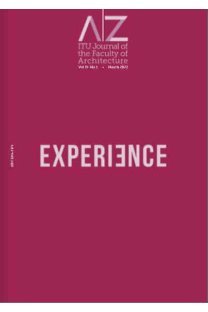Planning dilemmas in deindustrialization process in İstanbul
___
Aysan, M. ve Dökmeci, V., (1995), The Decentralization of the Industry and its Impact on Urban Transporta-tion in Istanbul, I.T.U. Research Fund, IstanbulBezmez, D., (2008), The Politics of Urban Waterfront Regeneration: The Case Of Haliç (The Golden Horn), Is-tanbul, IJURR, 32, 4, 8155-840.
Castells, M. (1991), The Informa-tional City, Blackwell.
Castells, M. (2006), The theory of Network Society, Cambridge.
Çakılcıoğlu, M. (2014), The Master Plan Problem, Retrieved from www.kentplanlama.org, 20.02.2016.
Doğan, M. (2013), Industrialization in Istanbul from Past to Present, Mar-mara Geography Journal, 27(1), 511-550.
Doğruel, F., Doğruel, S. (2010), The Deindustrialization of Istanbul, MPRA Paper, http://mpra.ub.uni-muenchen. de/27070/, 14.5.2017.
Florida R, (2002) “The Economic Geography of Talent”, Annals of the As-sociation of American Geographers, 92, 743-755.
Florida R L, (2004) Cities and the creative class (Routledge, London)
Friedmann J, (1995), “The world city hypothesis”, World cities in a world sys-tem, P L Knox, P J Taylor, Cambridge University Press, Cambridge.
Gökşen, T. (2015), Neoliberal Urban Restructuring Accelerated: Gentrifica-tion in Karaköy, (Unpublished Doc-toral Dissertation), Central European University, Budapest.
IMP 2009 Report (2009), Istanbul Metropolitan Municipality, Istanbul
IMP 1995 Report, (1995), Istanbul Metropolitan Municipality, Istanbul
IMP 1980 Report, (1980), Istanbul Metropolitan Municipality, Istanbul
Koparan, A. (2017), Personal Interview, 5.6.2017.
Mamunlu, Hale, (2009), Istan-bul Kentsel Bölgesinde Sürdürülebilir Gelişme Bağlamında Havza Planlama ve Yönetim Yaklaşımı: Küçükçekmece Göl Havzası Örneği, 33. Dünya Şehirci-lik Günü Kolokyumu, Istanbul.
Ministry of Science, Industry and Technology, (2016), OIZ Info Site, Re-trieved from www.osbbs.sanayi.gov.tr
Ministry of Environment, (2007), The 2006 Annual Report on Environ-mental Conditions in Istanbul, Min.of Env.Istanbul Directorate.
Ocakçı, M. (1989), Manufacturing industry and metropolitan city relations in the process of metropolitaniza-tion, (Unpublished doctoral disser-tation), ITU Graduate School of Sci., Eng. and Tech., Istanbul.
Öktem, B. (2011), Socio-spatial Re-flections of Neoliberal Urbanization Model in Istanbul, I.U. Journal of Fac-ulty of Political Science, 44(3). 23-40.
Pratt, A.,C. (2008). Questioning the relationship between Advanced Pro-ducers Services, the Cultural Industries and Global Cities, in Leriche, F. et al., L’économie culturelle et ses territoires. Toulouse, France: Presses Uni. du Mirail, 2008, pp. 257-267.
Roberts, P., (2000), The Evolution, Definition and Purpose of Urban Regen-eration, Urban Regeneration. London, Thousand Oaks, New Delhi, Sage Pub., p. 9-36.
Sassen, S. (2001), “Cities in the Global Economy”, in Paddison, R., Handbook of Urban Studies, SAGE.
Sassen, S. (2006), “Cities in a World Economy”, in Robert, T., J., Bellone, A., The Globalization and Development Reader: Perspectives on Development and Global Change, Blackwell.
Şen, B., (2011), Triple Alliance on Urban Space: Industrialization, Gen-trification and New Middle Class, I.U. Journal Faculty of Economics, 3, 1-21.
Tekeli, İ. (2014), Evaluating Turkey’s Urban Transformation Approach, Urban Regeneration; Economic, Social and Physical Aspects, UPAD Confer-ence Book, 151-164, Kocaeli Univer-sity.
Thomas, S. (2003), A Glossary of Re-generation and Local Economic Devel-opment, Manchester: Local Economic Strategy Center, UK
TUIK, (2013), (2015), Employment Statistics, Ankara
Yüzer, A.Ş., (2002) Location of In-dustrial Sites in Cities and New Reg-ulation Strategies; Istanbul Case, (Un-published doctoral dissertation), ITU Graduate School of Sci., Eng. and Tech., Istanbul.
- ISSN: 2564-7474
- Yayın Aralığı: 3
- Başlangıç: 2005
- Yayıncı: İTÜ Rektörlüğü
Planning dilemmas in deindustrialization process in İstanbul
Ahmet Hamdi Tanpınar’s Beş Şehir: An aesthetic approach to urban transformation
Future vision of urban design in central Tokyo- transformation of Minato City
From dystopia to utopia: Kocaeli
NEVNİHAL ERDOĞAN, Hikmet Temel AKARSU, BÜŞRA ÖZAYDIN ÇAT
Cem BOYACIOĞLU, Gülçin Pulat GÖKMEN, Nezih AYIRAN
Policy-oriented urban planning in 1930s in Turkey: İzmit Urban Plan
Development of urban hierarchies at the country and regional levels in Turkey
Architecture of the city in the post-urban transformation
